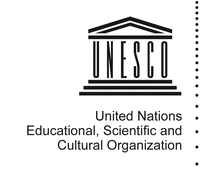Harnessing Artificial Intelligence to Strengthen Journalism and Media Meeting Action Line C9 : Development in line with UNESCO’s Internet Universality ROAM principles
United Nations Educational, Scientific and Cultural Organization (UNESCO)

Session 304
UNESCO takes the facilitation meeting of C9 Media to trigger a multi-stakeholder discussion on the crucial challenges of guiding the development of the Artificial Intelligence (AI) in a conducive manner to strengthen the role of journalism and media development in accord with UNESCO’s Internet Universality ROAM principles.
UNESCO’s Internet Universality R.O.A.M principles and indicators framework that advocate human Rights, Openness, Accessibility and Multi-stakeholder participation, presents the Organization’s updated position on the development of advanced ICTs including Artificial Intelligence. The newly developed 303 R.O.A.M indicators give teeth to the framework as a broad, robust and relevant tool, to measure the Internet development and other technological innovations, including AI-related applications. The framework provides a clear guideline for the application of these new technologies by making them conducive for advancing human rights based approach and achieving SDGs.
Artificial intelligence as an advanced ICT continues to impact the practice and protection of journalists, therefore affecting the content produced in journalism and media. Direct impacts of AI on journalism include the material and quality of the material that is disseminated in news and media production, as well as its audience. Consequently, it remains crucial that both the benefits and challenges of AI-enhanced journalism are analysed.
Digital techniques such as automated journalism, computational journalism and robotic journalism facilitate the generation of news by algorithm however, these methods of AI pose several limitations. Algorithms threaten media pluralism by means of the micro-targeting of select audiences. This micro-targeting can range from targeted advertisements to politically-motivated objectives. Moreover, the dissemination of fake news leading to misinformation and disinformation remains a concern at large. While AI-based algorithms can filter factual news from fake news, concerns regarding the legitimate “arbiter” of truth are provoked. Finally, as the confidentiality of sources are the foundation of integrity of journalists’, privacy concerns related to AI and journalistic sources are faced with challenges.
In sum, UNESCO stresses the importance of the human rights impacts of AI. Specifically, the effects and tangible future of AI intersectionality with journalism and media development. In order to strengthen journalism and media development in digital age, it is therefore strongly advised that AI and AI-based applications be subject to a set of clear guidelines that are conformant with international human rights standards.
UNESCO also takes the occasion to present the major outcome of its policy report “Steering AI for Knowledge Societies: A ROAM Perspective” , which sheds light on the human rights implications and opportunities and challenge for journalism and media that advanced ICTs are bringing, under the prism of the ROAM framework.
Key Questions / Topics for Discussion
- What are the core human rights concerns in relation to AI and AI-based tools in relation to journalism and media dissemination?
- What are positive and negative consequences of the usage of AI and AI-based tools in journalism and media dissemination? (Are there any foreseeable legal consequences for journalists themselves?)
- What role does the media play in relation to AI intersectionality and journalism?
Moderator
Ms. Xianhong Hu, UNESCO
Speakers/Panellists
Ms. Elodie Vialle, Rapporteurs Sans Frontiers
Mr. Cordel Green, Executive Director at the Broadcasting Commission of Jamaica
Ms. Valeria Betancourt, APC
Ms. Wafa Ben-Hassine, Access Now
Mr. Giacomo Mazzone, EBU
Mr. Antoine Vergne, Missions Publiques
Mr. Michael Oghia, Global Forum for Media Development
Session's link to WSIS Action Lines
-
 C9. Media
C9. Media
Session's link to Sustainable Development Process
-
 Goal 16: Promote just, peaceful and inclusive societies
Goal 16: Promote just, peaceful and inclusive societies